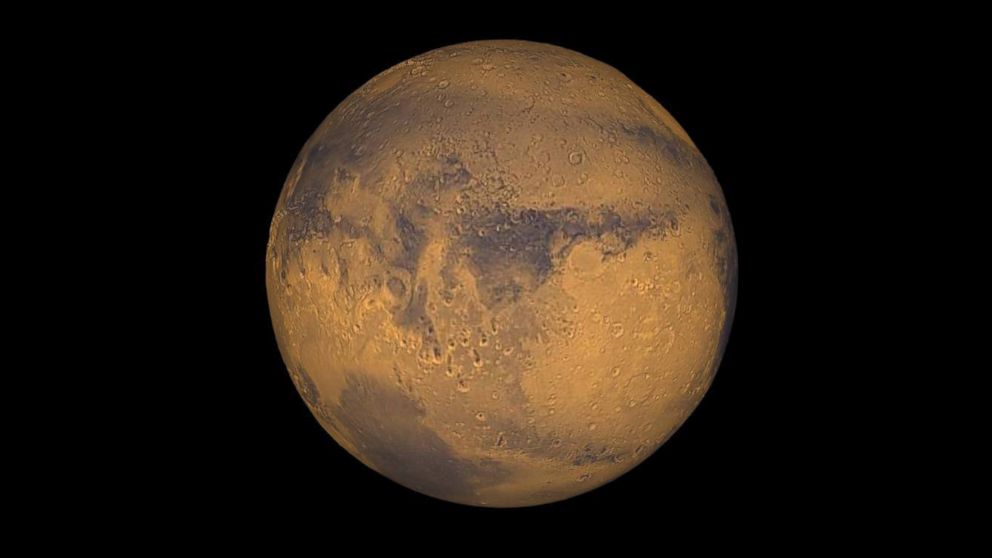Mars May Have Been Hit by Mega-Tsunamis Billions of Years Ago
New evidence shows the red planet may have had a northern ocean.

— -- Evidence of powerful ancient tsunamis on Mars are lending new credibility to the idea the red planet was once home to a northern ocean.
Scientists have long believed ancient Mars had a northern ocean but had struggled to support the theory with evidence. A new study published in the journal Nature details how two mega-tsunamis may have devastated the Martian coast billions of years ago, carrying with them sediment and reshaping the coastal terrain.
Using special mapping techniques, the team of scientists, led by J. Alexis Rodriguez of the Planetary Science Institute in Tucson, Arizona, were able to detect a redistribution of sediment in the Martian northern lowlands, an area that scientists have long thought is a prime location for an ancient ocean, given the necessary climate conditions.
"If you have tsunamis, you need to have an ocean, so it provides evidence for an ocean," Rodriguez told ABC News. "We identified two very different tsunamis. The first tsunami is rocky. The second is icy. They represent the climate change ... We believe that some of the icy tsunami material can give us evidence or information about the original chemistry of the oceans."
The waves, which could have been triggered by a meteor impact, could have been 10 meters to as much as 120 meters high, according to the study. It's believed both tsunamis took place about 3.4 billion years ago, several million years apart.
In thermal images of two northern areas — Chryse Planitia and Arabia Terra — scientists observed bright, rocky areas bordering dark, flat sections and theorized that powerful tsunamis had kicked up the material in the bright areas and wiped away parts of what was once a coastline.
The second impact is believed to have occurred when the climate was much colder. Lobes of frozen debris were detected in areas where it is believed the second tsunami came rushing toward the Martian shore.
Rodriguez is scouring for evidence of other tsunamis on Mars, according to the study. Finding isolated pockets of water could shed new light on places where life could have been sustained on the red planet.




